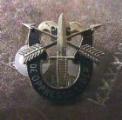I think Afghanistan's rural character makes our job much more difficult. We do not have the forces to have a permanent presence in every village and despite our many attempts, Afghan forces are inadequate for the task as well. IMO we were able to do more with less in Iraq because populations were concentrated and so one COP, for example, could impact a large number of people. That isn't the case in Afghanistan - a lower population density, a much larger geographic area mean the same number of COP's will impact fewer people. We have fewer troops overall, so that probably means fewer COP's and less impact from a pop-centric strategy. Then there is the enemy, who is more tactically proficient, better organized and able to mass and carry out complex attacks if given the chance. Added to that are a host of other tactical and operational headaches. Then there is the border and the troubles in Pakistan which are fundamental problems that pop-centric advocates have yet to address in any practical manner in my opinion.













Bookmarks